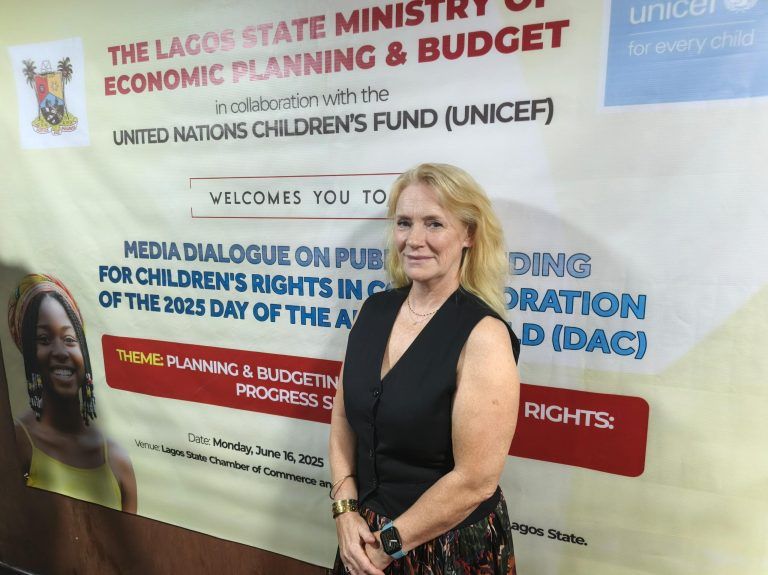As Nigeria marks the Day of the African Child, UNICEF has called for urgent reforms in how national and subnational governments plan, allocate, and implement budgets aimed at safeguarding the rights of children.
At a media dialogue in Lagos, UNICEF’s Chief of Field Office, Celine Lafoucriere, and Programme and Social Policy Manager, Muhammad Okorie, expressed concern over the persistent gaps between budgetary allocations and tangible improvements in children’s lives.
They noted that despite being Nigeria’s economic hub, Lagos State still struggles with widespread deprivations in child health, education, nutrition, and protection.
The 2025 Day of the African Child, themed “Planning and Budgeting for the Realisation of the Rights of the Child,” underscores the need for African governments to align budget processes with the urgent realities and needs of children.
Lafoucriere said effective budgeting must go beyond paperwork, stressing that allocations must be efficiently and transparently spent. “We have to ask not just if money is allocated, but whether it is efficiently and transparently spent to uphold children’s human rights,” she said.
She praised the Lagos State Government for working with UNICEF to create a budget code that tracks spending on child-focused initiatives across ministries. However, she added that visibility without impact is not enough. “Budgeting should be based on real data—where are the most vulnerable children? Who needs clean water, education, healthcare? That’s where funds should go,” she said.
Okorie described the contradiction in Lagos where high allocations do not always translate into improved outcomes. “Lagos State has the highest number of zero-dose, unimmunised children in the Southwest,” he said. “You look at indicators—child mortality, malnutrition, children out of school—and ask, where is the evidence of the budget’s impact?”
He stressed that a truly child-friendly budget must reflect equity, transparency, and accountability. “It’s not just about the adequacy of the budget. What matters is efficiency—are we targeting the right people? Are we eliminating leakages? Are we investing at the right stages in a child’s life?” he said.
While acknowledging Lagos as a “pioneer” in institutionalising child-sensitive budgeting, Okorie said commitment must translate into measurable outcomes. “They have the structure to succeed. What’s left is prioritising and spending more efficiently for children.”
He explained that a child-friendly budget applies a “child-rights lens” at every stage—revenue generation, planning, and spending. “You don’t build roads just to tick a box. Ask: how do these roads help children access schools or healthcare?” he added.
Okorie also underscored the importance of investing in early childhood, especially the first 1,000 days. “Missing that window means permanent physical and cognitive losses. We must invest early and intentionally,” he said.
UNICEF also urged the media to play a stronger watchdog role. “The media must become more interested in how government budgets are spent, not just how much is allocated,” said Okorie. “Ask the right questions: Is this spending equitable? Does it reach the most deprived? Does it reflect the best interest of the child?”
Lafoucriere echoed this, calling on journalists to become partners in advocacy. “We must be one voice—media, civil society, and development partners—to remind the government of its social contract, especially to children,” she said.
On the way forward, UNICEF insisted that with better planning, transparent monitoring, and public accountability, Nigeria can begin to close the gap between policy and practice. As the country marks the Day of the African Child, Lafoucriere posed a powerful question: “Is Lagos—and by extension, Nigeria—prioritising its children and youth, who are the future of this nation, or is it not? That is what we are here to answer.”















